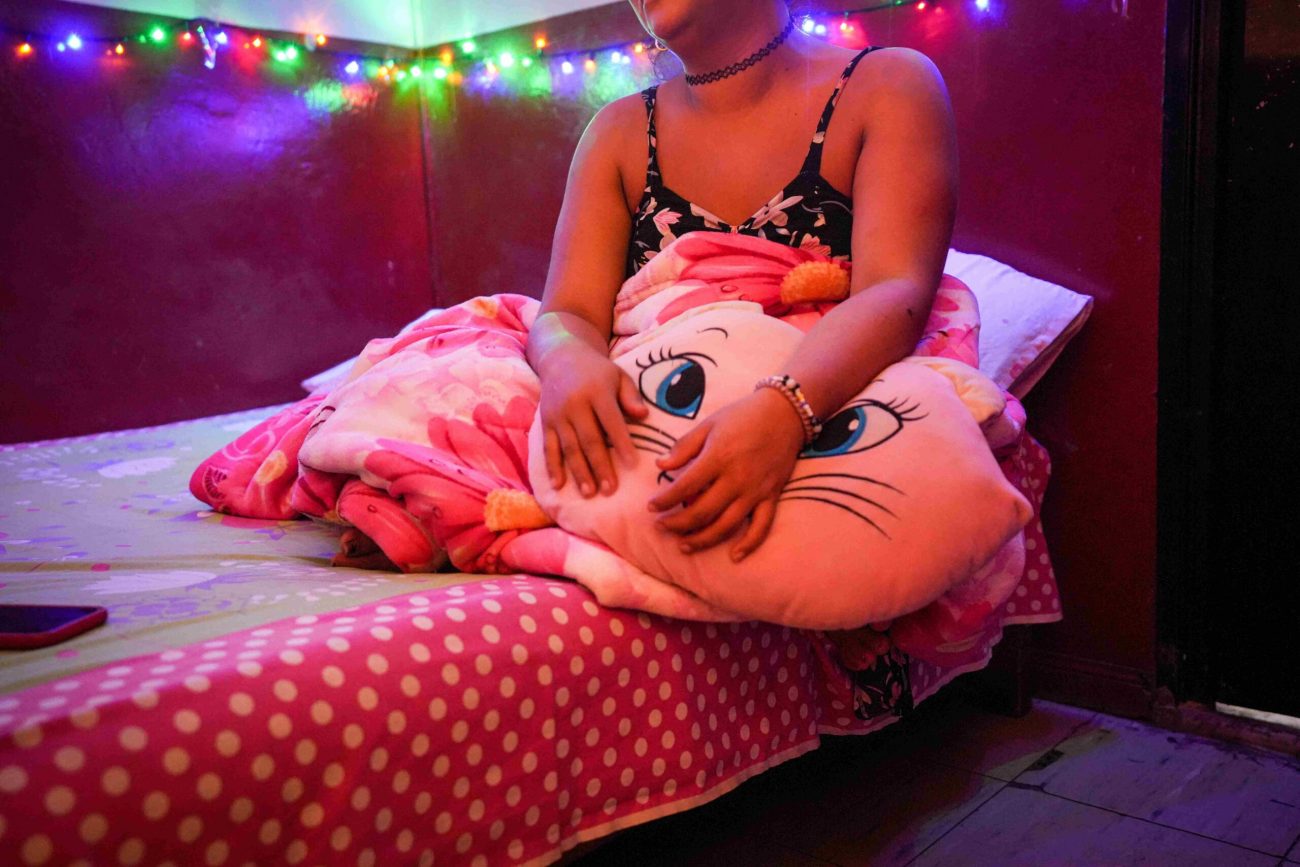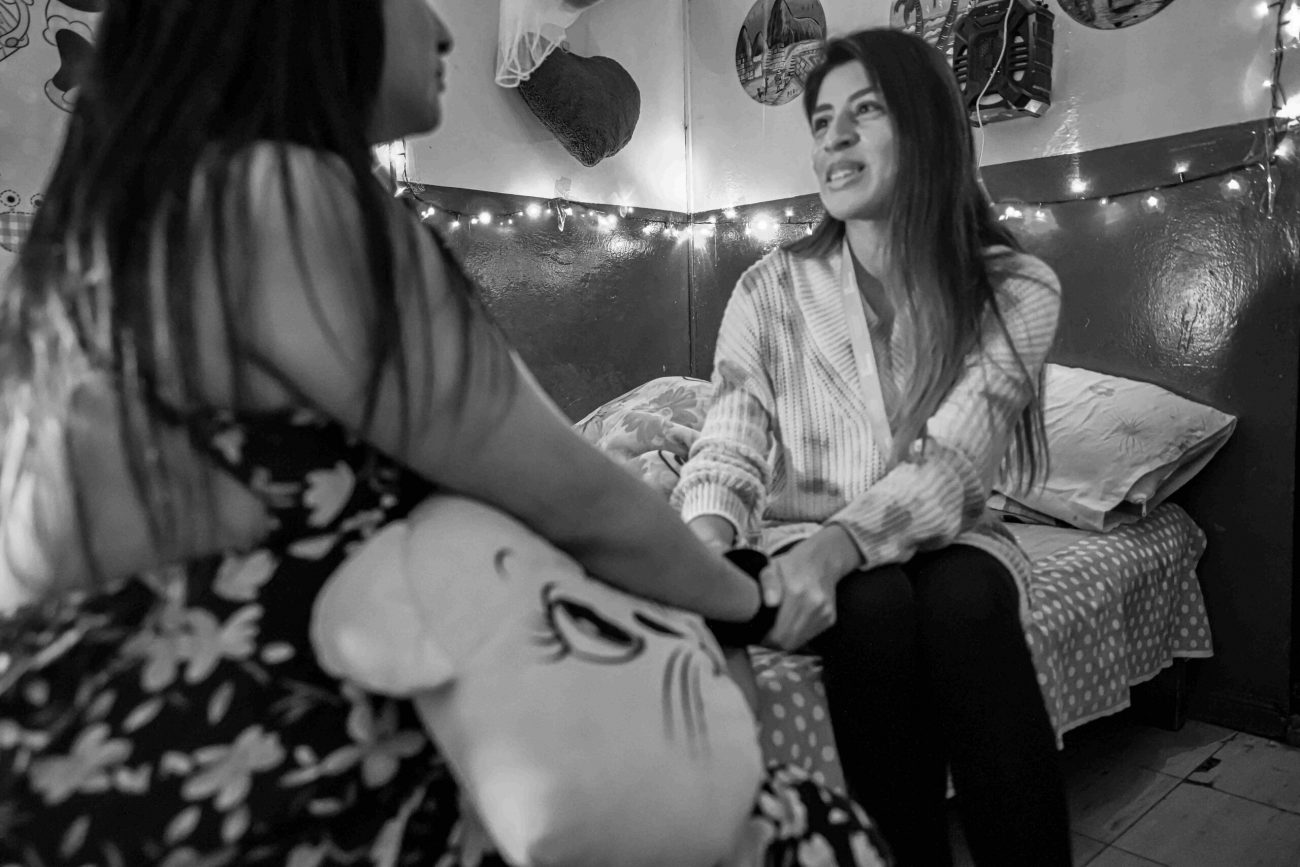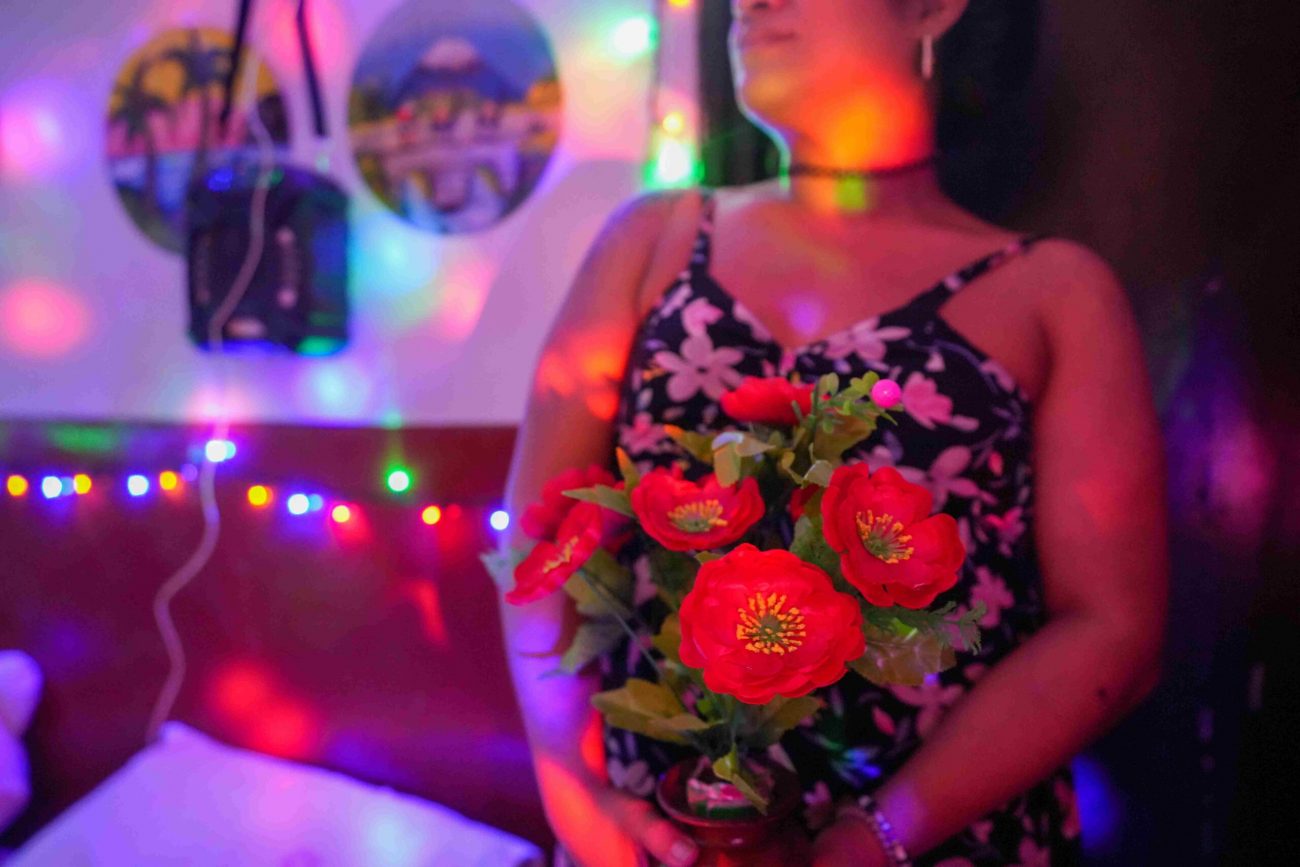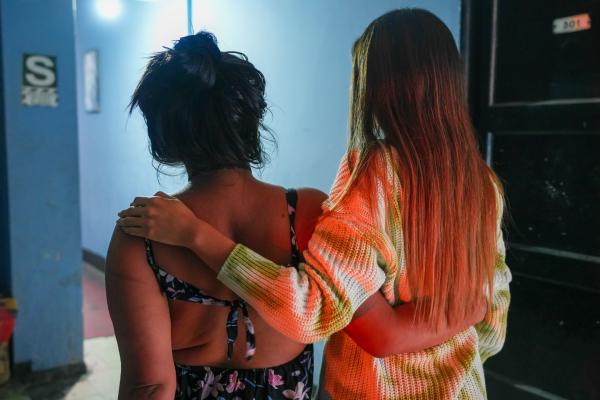The first time Alexia (26) met Lima she was disappointed. She didn’t like the weather, and the idea of returning to Pucallpa, where she lived before moving to Lima four years ago, crossed her mind.
“What I missed most was making money [he says with a chuckle], the cold didn’t let me work,” he recalls of those early days when he had to work in the streets with two jackets to resist the Lima winter, to which he was just getting used to.
In Peru, the Defensoría del Pueblo estimates that about 62.2 percent of transgender women engage in sex work due to lack of employment.
Alexia is one of them.
She has been a sex worker since the age of 11, when she was still living in her native Iquitos. There her days were spent between a home that did not accept her and a shelter for children and adolescents from which she had to escape for safety reasons. All that happened before she arrived in Pucallpa at the age of 15, where she began taking contraceptive hormones to begin her feminization process due to lack of access to adequate hormone therapy.
“I practically raised myself,” she stresses energetically.
Systematic discrimination and violence against transgender women is not only reflected in limited formal employment opportunities or being expelled at an early age from their homes, but also in limited access to basic health services. Many of them live unaware that they are carriers of STIs or other diseases.
Alexia is also one of them. Before she met Socios En Salud (SES), she did not know she was living with HIV and tuberculosis.

Alexia had never been tested for HIV or tuberculosis until she met Socios En Salud. Photo by Jose Diaz / PIH
Facing Reality
Between July 2022 and March 2023, the JunTrans team (a community-based intervention of the SES HIV Program) successfully screened more than 400 transgender women for timely and free screening for STIs, tuberculosis and mental health disorders through urban mobile brigades and home-based campaigns for trans women throughout Metropolitan Lima.
One of the most important steps was to link trans women who tested positive for HIV with the Centers of Reference for Sexually Transmitted Infections and HIV/AIDS (CERITSS) to initiate highly active antiretroviral treatment (HAART); in the case of participants with tuberculosis (TB), the linkage was made with health centers in their jurisdictions to carry anti-TB treatment.
All these actions were complemented by mental health care and socioeconomic support, components that are also part of JunTrans’ comprehensive care.
Carla Rodriguez, JunTrans coordinator, acknowledges that, as much as they want the well-being of all participants, they must first respect their spaces and rhythms when it comes to assimilating news such as an HIV-positive result.
“We can want many things, but we can’t invade the person,” she says.
In December 2022, Alexia received a free diagnosis from JunTrans and learned that she was a carrier of HIV and tuberculosis. She describes the feeling as having received a bucket of cold water.
“I didn’t feel like working, I was disgusted by men, angry,” she confesses of the whirlwind of feelings that swept over her after receiving the news.
Through psychological accompaniment by the JunTrans team, the day came when, after coming to terms with her condition, Alexia agreed to begin her treatment for HIV and tuberculosis.
“I’m not the only person in this world who has it,” Alexia says of HIV, “so why should I be crying or getting depressed?”
“I’m not the only person in this world who has it,” she says of HIV.

Alexia (left) and Carla Rodriguez (JunTrans coordinator) met in December 2022 during a JunTrans health campaign. Photo by Jose Diaz / PIH
JunTrans for health
Alexia considers herself a romantic girl. She likes ballads that talk about love, and in the room she lives in in Downtown Lima, heart-shaped stuffed animals are everywhere.
She says the previous room she rented, located inside the same house where she now lives, was bigger and with the perfect space to have all the dolls and stuffed animals she wanted.
“It hurt me to sell a lot of things,” she confesses.
In February this year, a crime wave against transgender women ravaged Downtown Lima. Girls Alexia knew, and even beneficiaries of JunTrans, were killed by an organized mafia that began charging quotas to trans women for working on the streets.
Alexia took refuge for a few weeks in Huánuco and so had to leave the large room where she used to live.
Factors of this kind produce a double risk for trans women: not only their integrity is at risk, but also their adherence to treatments to improve their health, which they sometimes abandon in their flight to safer areas.

“I like to be alone, to think things through, to be calm. That’s the way I am,” comments Alexia. Photo by Jose Diaz / PIH
Alexia is now in stable health, following her antiretroviral treatment to the letter and resuming her tuberculosis treatment.
JunTrans will begin a new intervention in the coming months, which will include support in the process of feminization hormone therapy. According to Carla Rodriguez, this is part of the empowerment of trans women, and will help participants like Alexia to carry adequate hormone treatments, under constant medical evaluation and laboratory tests.
Meanwhile, JunTrans is supporting her in getting her ID card. Alexia has never had one and the mere possibility of it is something that excites her.
“God willing, I’m going to another country…. Italy or Paris,” she says, cheerfully, about the plans she has dreamed of and wants to fulfill after getting her DNI.
Because she doesn’t have a DNI, Alexia had never been able to access health services until she met Socios En Salud. That is why she comments that she is currently at peace with herself, with the certainty that health will open new doors in her path.
“I am in a beautiful stage of my life, I am not the Alexia of before.”
